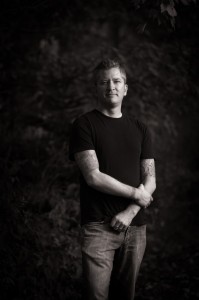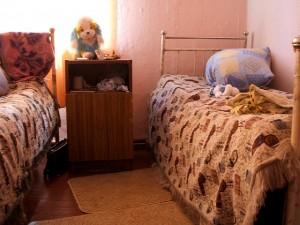I launched an investigation into the trend of Christian adoptions, which seems strange to call a trend, since it involves children and parents. Over the next several weeks, I’ll be periodically sharing perspectives from parents and children from adopted families. You can find the entire series here.
And in case you missed it, here’s Part 1 of my interview with Ben Corey of Formerly Fundie.

Alicia: Were there any hurdles or reasons that you had to come over to adopt? Did you ever face any push back from say, your parents?
Ben: Our families were completely supportive of it–the process itself is a giant barrier. For us, adoption has been a major financial commitment. We’re not wealthy people; we don’t own our own home and we don’t have a lot of excess. As we look back in seven years at the amount of money we have spent on adoption–whereas other couples would have bought a house, we financed adoptions.
So the push back is the process. It is a very invasive process: you have people coming into your home, asking you questions–very uncomfortable questions–and the process can take years for any given adoption.
Alicia: I don’t want to talk too much about your experience adopting, because I know you’ve written about that in other places, but now that you’ve adopted, do you still see it the same way? Do you still feel the same calling as before—has it changed at all?
Ben: I still feel the same calling, but I obviously see adoption completely differently. I think that early on, there’s a tendency to see adoption as beautiful. And in a way it is beautiful. But what I try to tell people is that number one, adoption is not for everyone. It is a very specific calling.
And number two, adoption is born out of a broken story. We have this tendency to see adoption as this beautiful story: “Oh wow ,they’re finally coming home,” but in reality they’re not coming home; they’re leaving home. They’re leaving the only home that they’ve ever known. And adoption only happens only because a story was broken—either parents died or parents couldn’t care for a child—so there’s so much brokenness. And while I may have understood that intellectually, I did not actually realize that until I began what we call “therapeutic parenting.”
For us, parenting is all therapeutic. The conversations we have with our kids are probably completely different than the conversations that occur with a biological child. We always have to always be ready for issues of identity to come up. At the most unexpected moment, there can be questions about “Why did my first family not want me?” Or there can be moments of flashbacks and memories of negative experiences at orphanages.
And then there’s all the special needs that are involved. My youngest daughter’s school records in Peru are just stamped “non-learner” across the top. As it turns out, she has a communications disorder and a very severe form of complex dyslexia. Our lives are involved with going to IEP meetings and researching ESL laws and understanding disability rights law.
This is partly what I mean by adoption as lifestyle. Adoption is not the picture you see on the news of someone getting off a plane and rushing to balloons and a new family and living happily ever after. Adoption is a story about finidng about how to work systems, how to deal with grief, how to teach children how to grieve and how to trust. Adoption is very complex, and this is actually why I grieve some of the trendiness of adoption. While it’s a beautiful trend, I fear that people who are not called to adopt, will adopt, and will be tragically ill equipped to help kids with such significant emotional needs.
Alicia: Why do you think that adoption has become a trend? That 20/20 episode [about international orphanages]—was that it?
Ben: It’s hard to say. I think that 20/20 episode certainly sparked something. But I also think it was something that was born out of the political conservative evangelical movement of the 80’s and 90’s. While I have profound disagreements with that movement, I think it is also important to see positive contributions from movements you don’t identify with. The Christian community, and even the conservative evangelical community, came together on the issue of adoption.
Now, where I disagree with them is I think a lot of them began to see it as a way to “bring the mission field into your home” and to convert a person–so that is where my philosophy would divert from theirs. But I do think that certainly

conservative evangelical Christians put adoption on the map. And because of my heart for the orphan I do have to celebrate that they have contributed.
I just think it’s time to shift the discussion a bit and to talk about some of the things that we’ve learned from the last ten, fifteen years of the adoption movement and to make some adjustments. I’m hoping that more voices like mine, that are both pro-adoption and willing to critique the adoption movement, will rise up and talk about things such as motive and corruption—because we need more of that in the discussion.
I think there’s a tendency to side on extremes. You have the hardcore pro-adoption movement and then you actually have a very anti-international adoption movement. And they both have some legitimate points, and so I’m going to be a voice in the middle that says, “Listen, there are children who legitimately have no other option than adoption and those children need to be adopted, and it needs to be done in a legal and ethical manner, and it needs to be done by families that are equipped to care for their needs.” And that’s where I think the voices that we need need to be: somewhere in the middle speaking reason to both sides.
Alicia: The anti-international adoption group, are those also Christians?
Ben: No, I’m not aware of any Christian movement that’s anti-international. It would be more people that would say it’s always wrong to remove a child from their culture. There are even some international NGO’s that are philosophically opposed to international adoption–and I hear some of their points.
But at the same time, I was just sitting inside an orphanage in the Congo a year ago this week. I was there on Mother’s Day, and I was the only person there. There were kids with plastic bags for diapers, and one child whose arms and legs wouldn’t work. He was severely malnourished, and they were coming out with the porridge for the day, and my heart just was destroyed from the inside out when I saw he turned his chin up and opened his mouth like a little bird hoping someone would drop some food in it.
And so you see images like that. I remember on that day I walked away saying “I will never f-ing apologize for adopting.” And I don’t care, I will never apologize. It’s hard to sit in an orphanage like that and to say that there’s no situation where you should never remove a child from their culture?
I call bullshit, because kids are dying.
But again, it needs to be done ethically. And it can be done.
Stay tuned for Part 3 – the future of Christian adoption?















